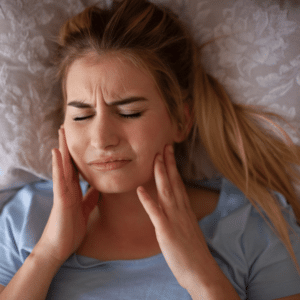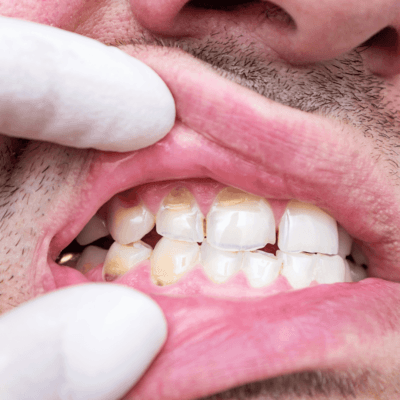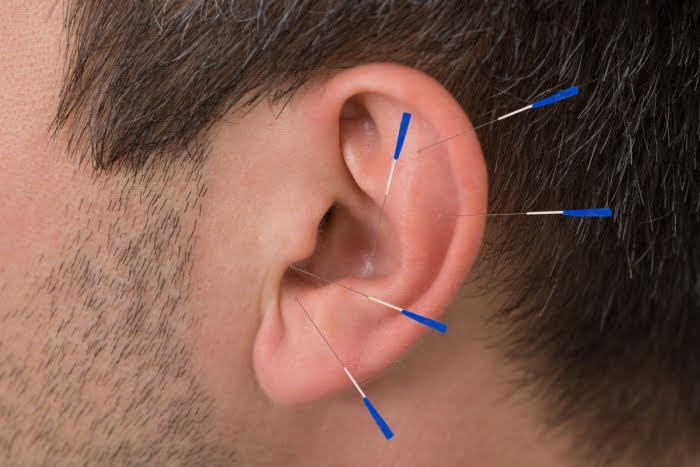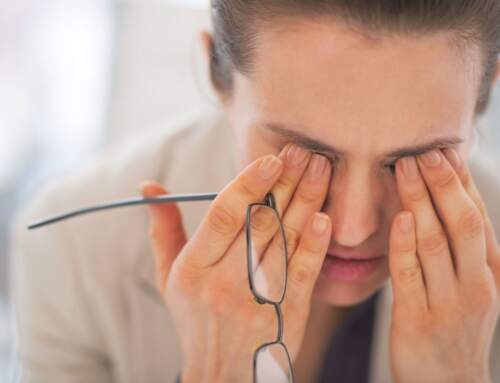Is Teeth Grinding Giving You Unexplained Neck Pain? Discover the Surprising Connection!
Are you waking up with persistent neck pain that seems to have no apparent cause? Brace yourself for a revelation that might leave you astonished! In this eye-opening article, we explore the mysterious connection between teeth grinding and neck pain. While teeth grinding, scientifically known as bruxism, is commonly associated with dental issues, its effects can extend far beyond the confines of your mouth. Prepare to uncover the surprising link between these two seemingly unrelated conditions and gain insights into how they intertwine. Say goodbye to the perplexing neck pain and stop grinding your teeth with our tips.
The Silent Saboteur: How Teeth Grinding Triggers Neck Pain
Teeth grinding can cause more than just dental problems—it can also lead to neck pain. The strong pressure from grinding your teeth makes the muscles in your jaw tight and strained. Since the muscles in your body are all connected, this tension can spread to your neck. Clenching and grinding mess with the balance of muscles, tendons, and nerves from your jaw to your neck, leading to stiffness, soreness, and even muscle spasms. If left untreated, teeth grinding can cause ongoing neck pain, making it a frustrating problem. Understanding how teeth grinding affects your neck can help find ways to prevent and relieve the pain.

Unmasking Bruxism: Understanding the Causes of Teeth Grinding
Teeth grinding, scientifically known as bruxism, can have multiple underlying causes that contribute to this involuntary habit. Understanding these causes is crucial in addressing and managing the condition effectively. Here are some of the common factors that can trigger teeth grinding:
1. Stress and Anxiety: One of the leading culprits behind bruxism is stress. Increased levels of stress and anxiety can manifest as teeth grinding during sleep or even while awake. The subconscious release of tension can provide temporary relief but make teeth grinding harmful over time.
2. Misaligned Bite or Dental Issues: Dental problems, such as misaligned teeth (malocclusion), can result in an uneven bite. The body may respond to this misalignment by tooth grinding to find a more comfortable position. Similarly, missing teeth or poorly fitted dental restorations can contribute to bruxism.
3. Sleep Disorders: Certain sleep disorders, such as obstructive sleep apnea, REM Sleep-Related Movement Disorder, and others that involve breathing interruptions during sleep, have been linked to bruxism. The body may grind teeth to open the airway and maintain proper airflow.
4. Medications and Substances: Bruxism can be a side effect of certain medications, including antidepressants, specifically selective serotonin reuptake inhibitors, antipsychotics, and stimulants. Additionally, the consumption of substances like caffeine, alcohol, and recreational drugs can contribute to teeth grinding.
5. Lifestyle Factors: Certain lifestyle habits, such as excessive alcohol consumption, tobacco use, and the abuse of substances like cocaine or methamphetamine, have been associated with an increased risk of nighttime clenching.
6. Emotional Factors: Emotional factors, such as anger, frustration, aggression, or suppressed emotions, can contribute to teeth grinding. The physical act of grinding can serve as an outlet for these emotions.
7. Neurological Conditions: Bruxism can sometimes be linked to certain neurological conditions, such as Huntington’s disease or epilepsy. The neurological abnormalities associated with these conditions can affect the control of muscle activity, including the jaw muscles.

The Hidden Dangers of Teeth Grinding: Unveiling Its Damaging Effects
Teeth grinding, or bruxism, can have several damaging effects on oral health, overall well-being, and quality of life. Let’s unveil the hidden dangers and risk factors associated with this condition:
1. Dental Damage: Constant grinding and clenching exert excessive force on the teeth, leading to tooth wear, fractures, and even tooth loss. The repeated pressure can also damage or dislodge existing dental restorations, such as fillings or crowns.
2. Jaw Pain and TMJ Disorders: Bruxism significantly strains the jaw joints, known as the temporomandibular joints (TMJ). Over time, this can result in jaw pain, facial muscle soreness, and the development of temporomandibular joint disorders (TMD). Individuals may experience difficulty in opening or closing the mouth, clicking or popping sounds, and even jaw locking.
3. Headaches and Facial Pain: The muscle tension and strain caused by teeth grinding can radiate beyond sore jaw muscles, leading to chronic headaches, facial pain, and even earaches. The persistent discomfort can significantly impact daily activities and diminish quality of life.
4. Sleep Disturbances: Bruxism often occurs during sleep, disrupting sleep patterns for both the individual and their sleep partner. Grinding sounds and movements can cause sleep fragmentation, leading to daytime fatigue, reduced cognitive function, and decreased overall sleep quality.
5. Gum Recession and Sensitivity: The excessive forces exerted on the teeth can cause the gums to recede, exposing the sensitive tooth roots. This can result in tooth sensitivity to hot and cold temperatures and an increased risk of dental decay.
6. Facial Changes: Long-term and severe bruxism can lead to changes in facial appearance. The constant grinding can cause the masseter muscle to become overdeveloped, resulting in a square or asymmetrical facial shape.
7. Psychological Impact: The chronic nature of bruxism and its associated symptoms can lead to increased stress, anxiety, and even depression. Physical discomfort, dental problems, and sleep disturbances can significantly impact an individual’s well-being and mental health.
If you suspect you are grinding your teeth, it’s important to seek professional help. A dental professional can evaluate your condition, identify the underlying causes, and recommend appropriate treatment options to mitigate the damaging effects of bruxism. Early intervention and management are key to preventing further oral health complications and improving overall quality of life.

Teeth Grinding 101: Symptoms, Signs, and How to Identify & Diagnose Bruxism
Understanding the symptoms and signs of bruxism is crucial for early identification and appropriate management. Let’s delve into Teeth Grinding 101 and explore the various aspects of this condition:
Symptoms of Bruxism
Bruxism can manifest in different ways, and individuals may experience a combination of the following symptoms:
– Teeth grinding or clenching, often audible to a sleep partner.
– Jaw pain, facial soreness, or tightness in the jaw muscles.
– Headaches, particularly upon waking up in the morning.
– Tooth sensitivity to hot or cold temperatures.
– Worn, flattened, or chipped teeth or loose teeth.
– Fatigue or discomfort upon awakening.
– Tension in the neck, shoulders, or face.
– Disrupted sleep patterns or sleep disturbances.
– Tooth Pain
Recognizing Bruxism
Identifying bruxism can be challenging as it often occurs during sleep. However, there are several indicators that can help in recognizing the condition:
– Awareness from a sleeping partner of grinding sounds during the night.
– Observation of flattened or damaged tooth surfaces.
– Dental examinations that reveal signs of wear, fractures, or gum recession.
– Evaluation of jaw pain, headaches, or facial muscle pain by a healthcare professional.
– Self-awareness of symptoms such as tooth sensitivity or tension in the jaw.
– An official sleep study will be able to diagnose sleep bruxism and other sleep-related disorders
Seeking Professional Help
While lifestyle changes and self-care strategies can be effective in managing teeth grinding and neck pain, seeking professional help is often necessary for more severe or persistent cases.
For teeth grinding, a dentist or oral healthcare professional is the primary point of contact. They can perform a thorough examination, diagnose the condition, and recommend appropriate treatment options, such as:
- Custom-made night guards or splints to protect your teeth
- Botox injections to relax the jaw muscles
- Dental restorations to repair any existing tooth damage
- Referrals to other specialists, such as physical therapists or sleep specialists, if necessary
For neck pain associated with teeth grinding, a healthcare professional, such as a primary care physician, physical therapist, or chiropractor, can provide comprehensive care. They may:
- Conduct a physical examination to assess the range of motion, muscle strength, and areas of tenderness
- Order diagnostic tests, such as X-rays or MRI scans, to rule out underlying conditions
- Develop a personalized treatment plan, which may include physical therapy, chiropractic adjustments, or pain management medication
- Collaborate with a dentist to ensure a coordinated approach to managing both teeth grinding and neck pain
Sometimes, a multidisciplinary team of healthcare professionals, including dentists, physical therapists, and mental health professionals, may be involved. This collaborative approach can help ensure a comprehensive and effective treatment plan that addresses both the physical and psychological aspects of teeth grinding and neck pain.
By understanding the symptoms, signs, and importance of identifying bruxism, individuals can take proactive steps to manage the condition effectively. Early intervention can prevent dental damage, alleviate symptoms, and improve oral health and well-being.
Breaking the Grinding Habit: Proven Techniques to Treat Bruxism
Breaking the habit of teeth grinding, or bruxism, is essential for preventing further dental damage and alleviating associated symptoms. Let’s explore proven techniques to help you stop clenching and grinding your teeth:
1. Awareness and Mindfulness: The first step in breaking the habit is to become aware of when you are grinding your teeth. Pay attention to moments of stress, anxiety, or tension that trigger the grinding. You can train yourself to become more aware of jaw clenching or grinding and consciously redirect your behavior through mindfulness practices, such as meditation or deep breathing exercises.
2. Stress Management: Since stress is a significant contributor to bruxism, finding healthy ways to manage stress can help reduce teeth grinding. Engage in stress-reducing activities like regular exercise, practicing relaxation techniques, engaging in hobbies, or seeking professional counseling if needed. Identifying and addressing the underlying sources of stress can be beneficial in breaking the habit.
3. Oral Health Routine: Maintaining good oral hygiene habits can help reduce the risk of teeth grinding. Brush your teeth twice a day with a soft-bristled toothbrush and fluoride toothpaste. Additionally, consider using a mouthguard or occlusal splint prescribed by a dental professional. These oral appliances create a barrier between the upper and lower teeth, protecting them from the damaging effects of grinding.
4. Avoid Stimulants: Reduce or eliminate the consumption of stimulants like caffeine, tobacco, and alcohol, as they can exacerbate bruxism. These substances can contribute to increased muscle tension and intensify teeth grinding. Opt for healthier alternatives and be mindful of their impact on your grinding habits.
5. Jaw and Facial Muscle Relaxation: Practicing facial relaxation techniques specifically targeted at the jaw and facial muscles can help relieve tension and reduce grinding. Apply warm compresses to the jaw area or gently massage the muscles to promote relaxation. Physical therapy exercises prescribed by a healthcare professional can also aid in relaxing the jaw muscles.
6. Sleep Environment and Routine: Create a conducive sleep environment that promotes relaxation and minimizes triggers for teeth grinding. Establish a consistent bedtime routine, maintain a comfortable sleep environment, and ensure you get enough sleep each night. Avoid stimulating activities close to bedtime and practice relaxation techniques before sleep to unwind and reduce tension.
7. Professional Treatment: A dental professional or healthcare provider may recommend additional treatments in severe cases of bruxism. These may include orthodontic correction for misaligned teeth, muscle relaxants, or cognitive-behavioral therapy (CBT) to address underlying psychological factors contributing to bruxism.
8. Avoid excessive chewing while you are awake. Stop chewing gum. Also, avoid chewing on ice, pens, and nails.
Remember, treating sleep bruxism takes time and persistence. It may require a combination of techniques and lifestyle modifications tailored to your specific needs. By incorporating these proven techniques into your daily routine and seeking professional guidance when necessary, you can take significant steps towards stopping teeth grinding and promoting better oral health.
Less Common Treatments for Bruxism
In addition to the more commonly known treatment options, there are some less obvious approaches that can be explored to help you stop teeth grinding. While their effectiveness may vary from person to person, they can be worth considering. Here are a few less obvious treatment options:
1. Biofeedback: Biofeedback involves using electronic devices to monitor and provide feedback on muscle activity, helping individuals become more aware of their bruxism and learn to control it. This technique can aid in recognizing triggers and consciously relaxing the jaw muscles.
2. Hypnosis: Hypnotherapy can be used to address bruxism by targeting the underlying psychological factors that contribute to teeth grinding. Through hypnotic suggestions, individuals can achieve a relaxed state and develop new patterns of behavior to alleviate bruxism.
3. Acupuncture: Acupuncture, a traditional Chinese medicine practice, involves inserting fine needles into specific points on the body. It is believed to help rebalance energy flow and reduce muscle tension, potentially offering relief from bruxism symptoms.
4. Botox Injections: In some cases, Botox injections may be considered for treating severe bruxism. By injecting Botox into the jaw muscles, their activity can be temporarily reduced, resulting in diminished grinding and muscle tension. This approach typically requires specialized evaluation and treatment by a healthcare professional.
5. Stress Reduction Techniques: While stress management was mentioned earlier, it’s worth emphasizing the importance of finding stress reduction techniques that work specifically for you. These can include engaging in activities you enjoy, practicing yoga or mindfulness meditation, journaling, or seeking therapy to address underlying emotional factors contributing to sleep bruxism.
By implementing these strategies, fostering self-awareness, and seeking appropriate care, individuals can regain control of bruxism, protect their dental health, improve overall well-being, and embrace a more peaceful night’s sleep. Together, we can break the cycle of teeth-grinding and embrace a brighter, healthier future.

Conclusion
In conclusion, understanding why people grind their teeth and its effects is crucial for effective management and prevention. By recognizing the symptoms, identifying underlying causes, and implementing appropriate strategies, individuals can break the habit of teeth grinding and mitigate its damaging effects.
We have explored various techniques, from stress management to oral health routines, to help stop teeth grinding. Additionally, we have discussed less obvious treatment options that may be worth considering, such as biofeedback, hypnosis, acupuncture, and Botox injections.
It’s also important to address the impact of teeth grinding on jaw and neck pain, headaches, and the stress and anxiety that often accompany this condition. Massage therapy can be a valuable tool in alleviating muscle tension, reducing pain, and promoting relaxation. Skilled massage techniques targeting the jaw, neck, and facial muscles can provide relief, improve blood circulation, and help manage stress and anxiety associated with bruxism. [Schedule here] Here’s a self massage technique you can perform!
Remember, managing teeth grinding requires a multifaceted approach. Seeking professional guidance, whether from dental professionals, healthcare providers, or practitioners specializing in relevant therapies, can provide personalized recommendations and support on the journey to a healthier, pain-free jaw.





